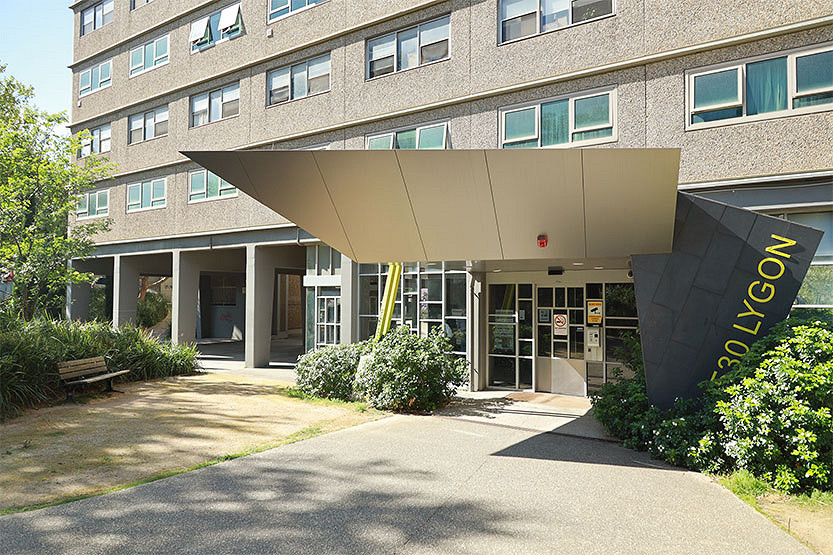Public housing tenants came together to improve their housing
Late last year I welcomed the state government’s new program to have structured consultation with public housing residents in Flemington and North Melbourne through the Pave the Way Forward Program (PWFP).
Early indications, though, are that the listening is not happening as promised.
Pampas St public housing resident Deepa Gutpa, a member of the new action group, reported to sister publication North West City News last year that she had been asking for basic repairs “to no avail.’’
One of her neighbours, a 92-year-old and handicapped woman fell and injured herself in her bathroom last year because a broken light had not been fixed despite making “dozens” of calls.
My own representations on lifts in the Carlton estate have been met with a better response and I look forward to having them addressed early this year.
Victorian Ombudsman
Victorian Ombudsman Deborah Glassman emerged as a hero for public housing tenants last year with her report on the lockdown of the Flemington and North Melbourne towers in 2020 being found to breach residents’ human rights.
The Ombudsman’s 2021 Annual Report advised that there were 1,137 complaints from public and community housing residents combined.
Ms Glassman found this number unacceptably high and has promised to examine the Department of Families, Fairnesss and Housing’s complaints handling this year.
I welcome this new commitment and support the strengthening of the Ombudsman’s office and its capacity to respond to complaints.
I know things are very difficult with COVID-19 but it doesn’t excuse habitual poor responses by the Department.
Social housing regulations reviews
An interim report from this review engage.vic.gov.au/social-housing-regulation-review handed down during the Christmas break includes wide ranging proposals to change how public, community and so-called affordable housing is regulated.
Community housing organisations (CHO) were found to be problematic in how they regarded their tenants’ rights.
This is an important finding as the state government is fully committed to replace public housing with community managed and owned housing. The Big Housing Build is all about this objective.
One proposal is the transformation of the Victorian Public Tenants Association (VPTA) into an agency that covers both public and community housing tenants.
Having championed a campaign for a Public Housing Ombudsman in 2020 and 2021, I do not support this proposal.
The VPTA has lost support among public housing tenants and has struggled to secure public housing tenants as board members.
Making the VPTA a body for both public and community housing tenants fits with the government’s agenda of moving away from public housing as the most cost-effective and secure form of housing for the well over 110,000 adults and children on the waiting list, which is growing not going down.
Big house build
The Regulation Review’s interim report made the following observations on pages 78 and 79 about community housing:
“Even though registered community housing agencies are not-for-profit organisations, more complex financial models and new investment vehicles are emerging which are altering the sector’s risk profile.
Developments involving a mix of social, ’affordable’ and market priced housing delivered by multi-party consortia are emerging in response to the Big Housing Build. This model is encouraged by the National Housing Finance Investment Corporation (NHFIC) which has found that, in combination, provision of government-owned land, mixed-tenure developments, NHFIC finance plus private sector finance can help address the low rental returns for community housing projects and reduce the level of state investment required. While this model may result in greater growth in social housing than would otherwise occur, CHOs are expected to take on higher levels of private debt (albeit at historically low cost) to help fund growth and must manage the risks involved.
CHOs are becoming involved in multi-party special purpose vehicles (SPVs) which enable for profit businesses to access funds and become involved in not-for-profit housing beyond the traditional roles played by the private sector in housing construction and lending. These entities may take various legal forms and have complex governance structures that differ significantly from the existing registered housing agencies. The introduction of for-profit entities and new entrants in the sector as SPV participants, and the upscaling of development activity, may pose risks in relation to service delivery and tenant outcomes, financial stability, governance and probity and reputation risks to the sector if things go wrong. There are examples from overseas jurisdictions where the involvement of for-profit partners and/or a relaxation of regulatory scrutiny of providers’ investment activities have resulted in poor outcomes for tenants and the social housing sector. The current regulatory regime was not designed with these arrangements in mind.”
CHOs under this scenario will move increasingly away from providing housing for very low- to low-income earners as they look for higher rental returns to balance the books.
Just before Christmas we saw new public housing demolition projects confirming this drive by the government. Barak Beacon Boulevard, Port Melbourne estate residents received a letter from Homes Victoria CEO, Ben Rimmer telling them they will have to move out during 2022 so that the estate can redeveloped. No prior consultation, just a notice to vacate.
Redevelopment will be under the “ground lease” model that provides public housing land at peppercorn rents for 40 years to developers to build a combination of private full market rent, lower than market rents and a minority of dwellings for community housing tenants. Private rents in Port Melbourne are high and investors will get their returns if it goes ahead.
The Age published a letter last December that summed up what is happening:
“Unseasonal greetings
A good friend of mine has lived for some years in comfortable and pleasant 1970s public rental housing in Port Melbourne, just opposite the expensive, private Beacon Cove estate. On Tuesday she and her fellow tenants received a letter, dated December 4, advising them that they “will be required to relocate” next year and their housing will be demolished.
Oh yes, someone knocked on her door from Homes Victoria the day before but, by the time she answered it, they had left – clearly not understanding how long it takes for someone with chronic health problems to get up and answer the door. So much for their understanding of vulnerability.
Oh yes, Homes Victoria will be offering housing somewhere else. That will make everything all right – not. Ironically, it does not understand the difference between housing and home. Shame on the ALP.
Tim Gilley, South Melbourne”
I met with 35 residents at the estate in January, along with other members of the Save Public Housing Collective. Residents are saying the buildings are structurally sound and don’t have to be knocked down. They don’t want the extreme trauma of moving out of their homes.
I am supporting these residents in saying no to this shameful proposal •

Carlton language school championed by Ukrainian refugee






 Download the Latest Edition
Download the Latest Edition